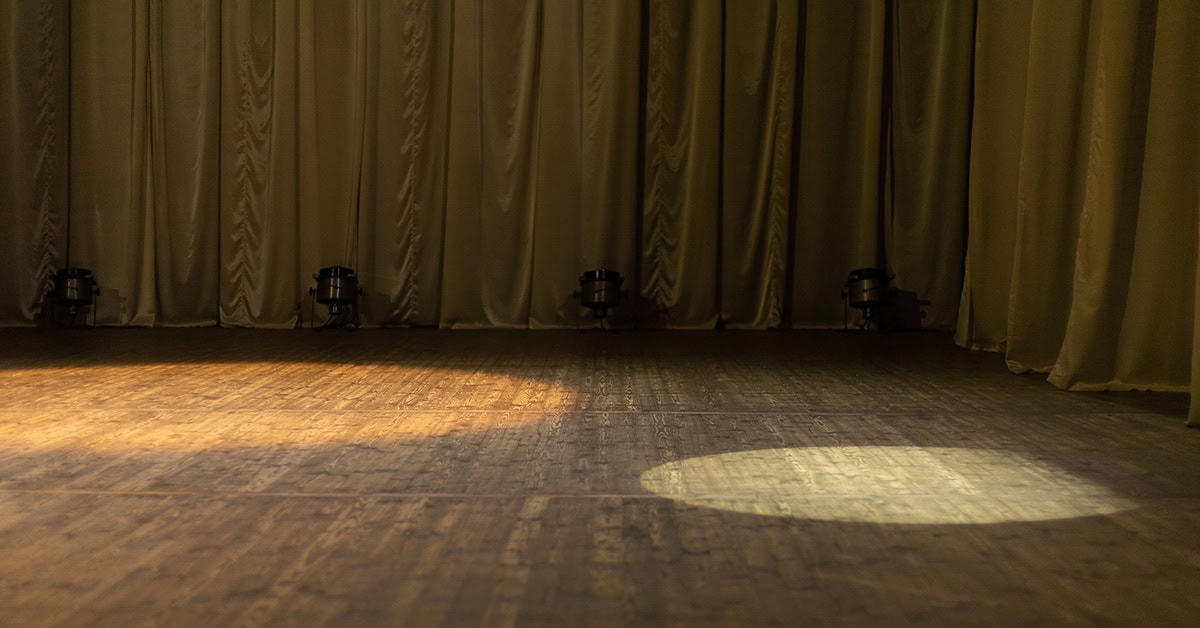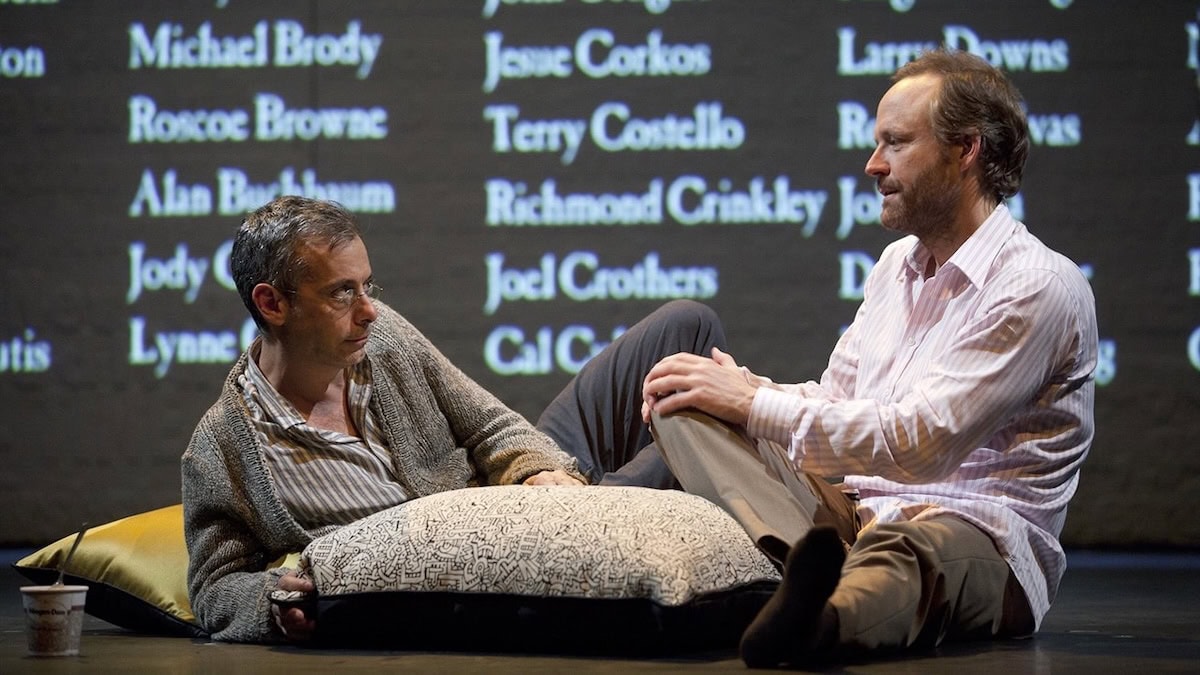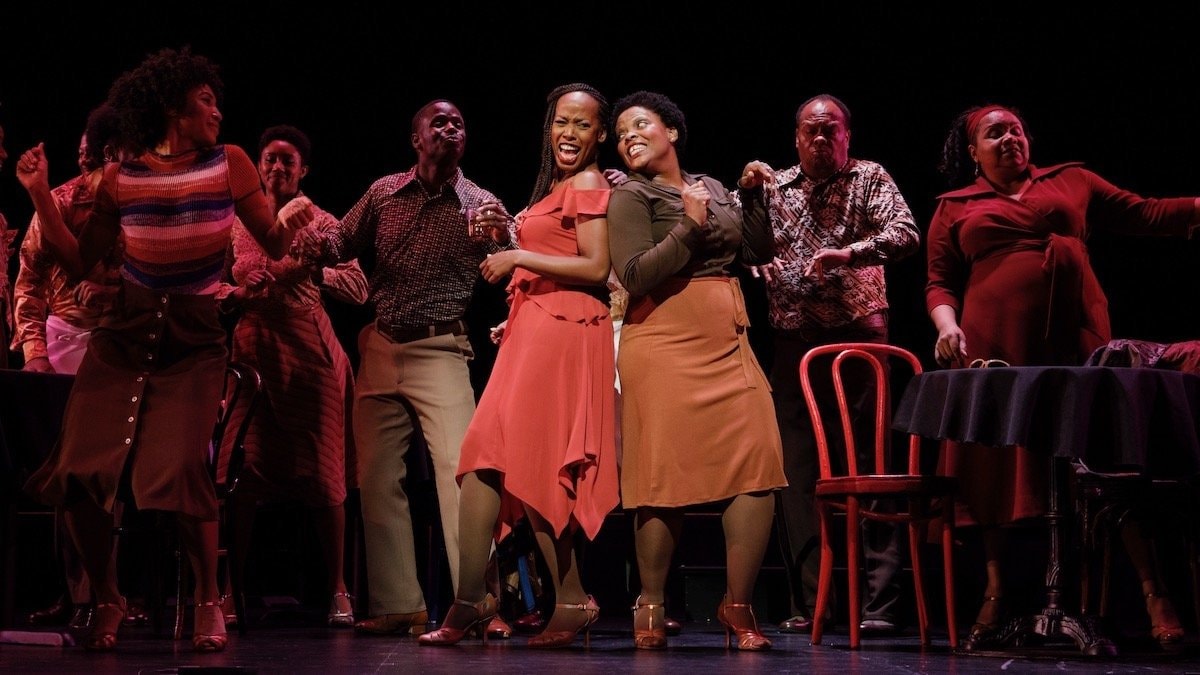
“The word that the Greeks used for what the Romans called ‘veritas’ and we call ‘truth’ is distinguished by the ά-privative ά-λἠθεία [aletheia]. At first truth meant what was wrenched away from a hiddenness.”
– Martin Heidegger, Plato’s Doctrine of Truth
“The truth is so hard to find and it’s almost impossible to hold onto.”
– Adam Bock, A Life
MELISSA: We’re not leaving here until we stop Marnie from kissing that guy. We made a promise. Sit down.
They all do. MELISSA stares into the distance. Then:
The world tilts, MELISSA, LINDA, BOB and EDDIE slide offstage, MARNIE and FRANK slide onstage.
The world tilts back the other way, BOB slides back onstage.
– Adam Bock, The Drunken City
Adam Bock looks life straight in the eye. The truth has got to be there somewhere, doesn’t it? Maybe we can sneak up on it? Adam’s work always starts out easy. We recognize his characters right away: seemingly ordinary, oft-overlooked, he tunes in to the fresh vernacular poeticism of their daily speech. We laugh, disarmed. “This is life,” we think. “They’re so real.” But they’re also all a little restless. They want to be true to themselves, but how? What does that mean? We feel them strain against the limits of their knowledge and their language. Then, pow, truth hits. In The Drunken City, bride-to-be Marnie realizes she doesn’t want to get married. When she tells her friends, the stage literally tilts back and forth for a minute as everyone tries to process this mind-blowing news. It’s a quintessentially Bock-ian moment. All of Adam’s plays find similarly theatrical gestures to dramatize the rough shock we feel when reality collides with truth. We never see these moments coming, even with a title like The Drunken City.
The signature Bock-ian moment in A Life is just as mind-blowing and theatrically perfect and it exponentially magnifies the play’s consideration of meaning and truth. A Life has much in common with all of Adam’s plays, but it is also his most palpably contemplative and epistemological. The protagonist, Nate, talks about the elusiveness of meaning. Even when he feels he’s onto something, that realization rapidly dissolves into time. But that’s why we make art. Plays and novels are literary machines that create meaning. But the time constraints of the play make its truth-seeking more lifelike. The epiphanies of recognition that erupt out of a play are both repeatable and ephemeral. The truth that illuminates A Life depends upon this repeatability and this ephemerality. It also depends on a sudden theatrical shift to the lives of others that explodes all solipsism.
I love the definition of “truth” that Heidegger draws from his study of Plato. The root of the word aletheia is the same as the river “Lethe,” the river of forgetting that the Dead cross on their trip to the underworld. So a-letheia is that which is extracted from forgetfulness, wrested from the hidden. There is an underlying violence in the revelation. But the violence is necessary to tear the veils from our sight, to pry the mask off. What we find then feels like a discovery, and a discovery that connects us to others. That is why I love this play. I think it is wise, brave, and beautiful. But these virtues will only materialize when shared in the dark, in real time, with a room full of strangers.
This article is a reprint and was originally published on the Playwrights Horizons website.
To purchase a copy of A Life, click here, and to learn more about licensing a production, click here.

Recommended Shows for Drama Festivals

The Truth Behind… The Normal Heart

